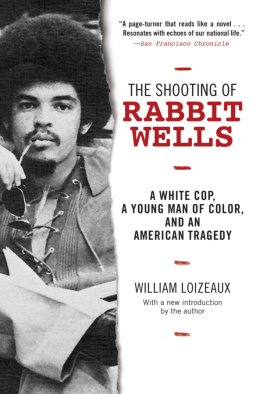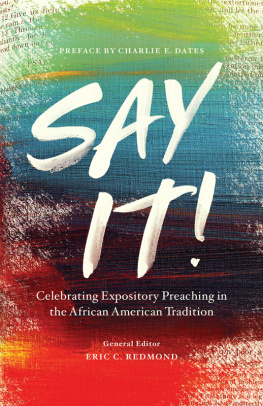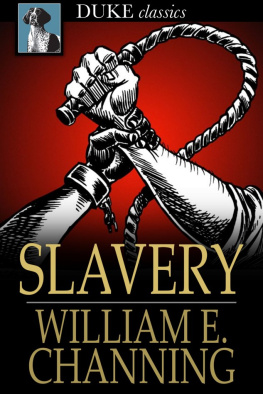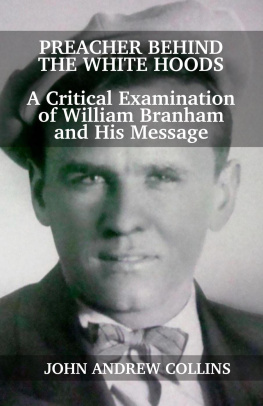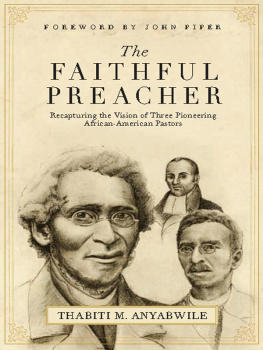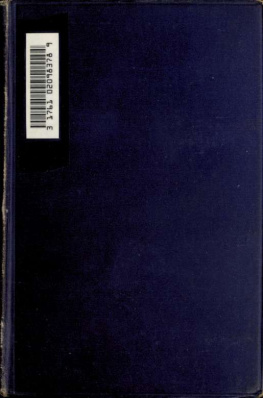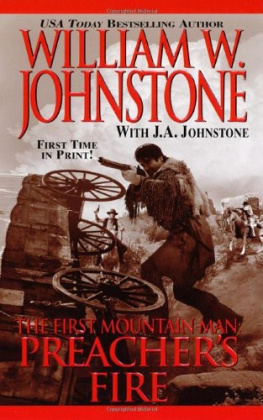The African Preacher
An Authentic Narrative
Rev. William S. White
Contents:
The African Preacher.
Appendix I. Biographical Sketch Of Dr. James Jones.
Appendix II.
The Night Funeral Of A Slave.
The African Preacher, Rev. W. S. White
Jazzybee Verlag Jrgen Beck
86450 Altenmnster, Loschberg 9
Germany
ISBN: 9783849643744
www.jazzybee-verlag.de
www.facebook.com/jazzybeeverlag
admin@jazzybee-verlag.de
To the Rev. BENJAMIN H. RICE, D. D.,
Pastor of Hampden Sidney Church, Va.:
REV. AND DEAR BROTHER--BY your counsel, my humble labors as a Domestic Missionary were commenced in the county of Nottoway; and to your sympathy and cooperation is to be ascribed a large portion of the little good which may have resulted from those labors. It is, therefore, most reasonable that a narrative resulting, as this does, from that mission, should be inscribed to you.
Accept it, then, as a humble expression of the respect, the gratitude, and the love of
Your Friend and Brother,
WILLIAM S. WHITE.
THE MANSE, Lexington, Va., March 10, 1849.
The African Preacher.
THE prominence given in the Scriptures to the characters and lives of such persons as Ruth, Esther, and Nehemiah, proves, that "God hath chosen the poor of this world, rich in faith, and heirs of the kingdom which he hath promised to them that love him"-- that he hath moreover "chosen the foolish things of the world, to confound the wise, and the weak things of the world, to confound the things that are mighty." Since the days of inspiration ended, the dealings of God's providence and the dispensations of his grace, have beautifully harmonized with the revelations of his word. Hence, in all ages of the world, down to the present hour, many of the loveliest specimens of true piety, have been found in the humblest walks of life. Here, God's wisdom, love, and mercy shine with a luster all their own; and here, religion displays its richest fruits.
The narrative now to be given is designed to illustrate these remarks. The subject of it was a native of Africa. When about seven years of age, he was kidnapped, brought to this country, and enslaved. He was supposed to belong to one of the last cargoes of this sort, ever landed on the shores of Virginia. He was purchased at Osborne's, on James' river, by a Mr. Stewart, and was subsequently taken to the county of Nottoway, Virginia, where the whole of his long and interesting life was spent.
He grew to manhood, ignorant of letters, and a stranger to God; engaged in the occupations common to those in a state of bondage. The region of country in which he lived, was, at this period, deplorably destitute of the means of grace. The gospel was seldom preached, the Sabbath scarcely known as a "day of sacred rest," and few were found willing to incur the odium of a public profession of religion.
Before we proceed further with our narrative it is important to state, that "Uncle Jack," for so he was universally called, possessed great acuteness of mind, and understood and spoke the English language far better than any native of Africa we have ever known. His pronunciation was not only distinct and accurate, but his style was chaste and forcible. His great superiority in this respect must be ascribed to the following causes:-- First, to his having left his native land at so early an age. Next, to the freedom with which he was permitted and encouraged to mingle in the best society the country afforded; and above all, to the familiar acquaintance he soon formed with the language of the Bible. The reader must not be surprised, therefore, that nothing occurs in what we quote from his own lips, of the jargon peculiar to the African race. Nobody ever heard the good old preacher say massa for master or me for I.
It was during the period of intellectual and moral darkness already referred to, and when he had probably reached the fortieth year of his age, that he became anxious on the subject of religion. The account he gave of his early religious impressions, was very simple. He said nothing of dreams and visions, as is so common with persons of his colour. His attention was first arrested, and his fears excited, by hearing from a white man that the world would probably be destroyed in a few days. On hearing this, he asked his informant what he must do to prepare for an event so awful. He was told to pray. "This," he said, "I knew nothing about. I could not pray." At length he was enabled to recall some portions of the Lord's prayer, which he continued to repeat for a considerable time. But these efforts brought him no relief.
That which thus commenced in mere alarm, soon led to a deep and thorough conviction of his guilt, helplessness, and misery, in the sight of God. He now exerted himself in various ways, and with untiring zeal, to obtain a knowledge of the truth as it is in Jesus. There were literally none in his vicinity, either in the ministry, or among the private members of the church, qualified to teach and to guide an inquiring mind like his. The Presbyterian church, then recently established in Prince Edward, was within thirty miles of his residence. The ministers of the gospel from that county, made occasional excursions into Nottoway. From these he soon obtained the help he needed. His own statement on this subject is as follows: "I had a very wicked heart, and every thing I did, to make it better, seemed to make it worse. At length a preacher passed along; they called him Mr. President Smith. He turned my heart inside out. The preacher talked so directly to me, and about me, that I thought the whole sermon was meant for me. I wondered much, who could have told him what a sinner I was. But after a while there came along a young man they called Mr. Hill; and about the same time another, with a sweet voice, they called Mr. Alexander. These were powerful preachers too, and told me all about my troubles; and brought me to see, that there was nothing for a poor, helpless sinner to do, but to go to the Lord Jesus Christ, and trust in him alone for salvation. Since that time, I have had many ups and downs; but hitherto the Lord has helped me, and I hope he will help me to the end."
He now became deeply interested in hearing the Scriptures read. As his knowledge of the Bible increased, he found, to use his own language, "that it knew all that was in his heart." He wondered how "a book should know so much."
He was still unable to read, but now determined to learn. To this end he applied to his master's children for assistance; promising to reward them for their pains with nuts and other fruits, as tuition fees. By the aid of his youthful instructors, his object was soon attained, and he read the word of God with ease. The sacred volume now became the constant companion of his leisure hours. So rapid was his progress in divine knowledge, and such his prudence, good sense, and zeal, that many of the most intelligent and pious people of his neighborhood expressed the desire to have him duly authorized to preach the gospel. The Baptist church, of which he had become a member, took this matter into serious consideration; and after subjecting him to the trials usually imposed by that denomination, licensed him to labour as a herald of the cross.
Upon the duties of his new and responsible office, he entered with a truly apostolic spirit. He commenced his ministry in a neighborhood where there were literally none to break statedly to the people the bread of life. His labors were abundant and faithful. He was often called to preach at a distance of more than thirty miles from his home. He was still a slave, and never seemed to think of any better state, until his attention was called to it by others. He belonged to the undivided estate of his original purchaser, who was now dead. Some of the legatees of this estate were willing to emancipate him, but others were not. This, however, constituted no serious obstacle. He had rendered himself so useful, and had gained the confidence and good will of the community to so great an extent, that a sum of money was soon raised by subscription, quite sufficient to satisfy the demands of those who were unwilling to liberate him. Some idea may be formed of the estimation in which he was held, when it is known that many contributed liberally to the fund thus created, who were not professors of religion. Having thus secured his freedom, he settled on a small tract of land, of which he became the proprietor, chiefly through the munificence of others, and lived in a way which satisfied his humble wishes. Here he literally earned his bread with the sweat of his brow, while he faithfully dispensed to others the bread of life, with scarcely any compensation, except the consciousness of doing good.



